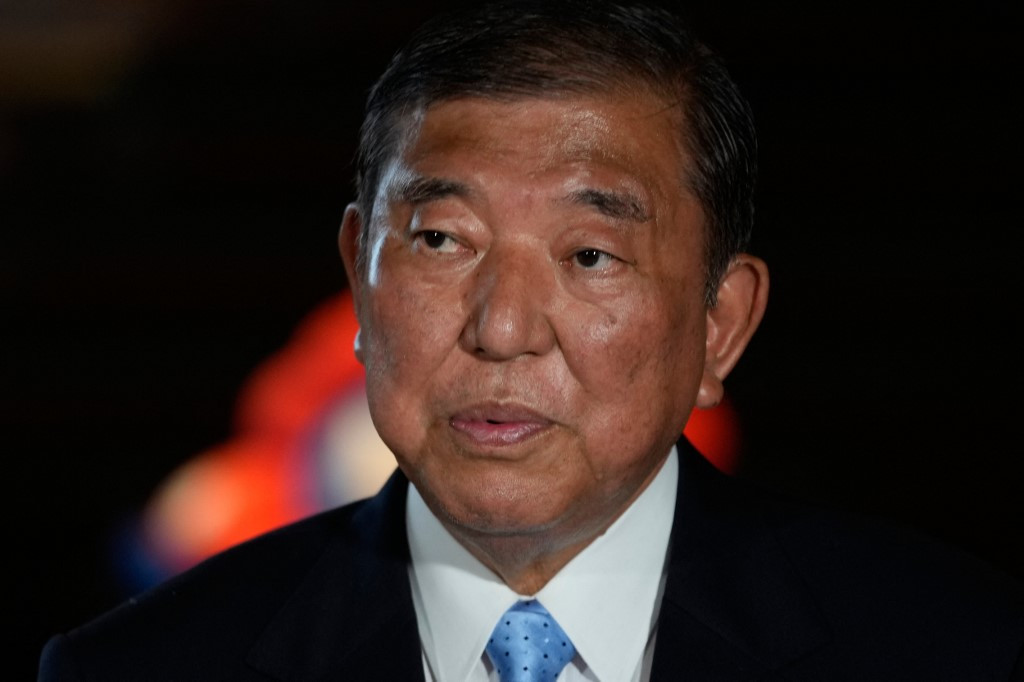Popular Reads
Top Results
Can't find what you're looking for?
View all search resultsPopular Reads
Top Results
Can't find what you're looking for?
View all search resultsJapan PM Ishiba weighs timing of resignation amid revolt in ruling party
With the “Down with Ishiba” movement showing no signs of easing, the window for the prime minister to decide on his own is steadily shrinking.
Change text size
Gift Premium Articles
to Anyone
W
ith Prime Minister Shigeru Ishiba having decided to resign, the focus has now shifted to when he will make it official. Ishiba plans to choose a moment that will minimize disruption to key political events — reaching a formal agreement in Japan-US tariff negotiations, an upcoming extraordinary Diet session, and the leadership race for the Liberal Democratic Party, of which Ishiba is president.
But with the “Down with Ishiba” movement showing no signs of easing, the window for the prime minister to decide on his own is steadily shrinking.
“The tariff talks concern the national interest. I’m counting on [economic revitalization minister Ryosei] Akazawa,” Ishiba confided to those around him on Tuesday night, the eve of the tariff deal. “Once the tariff negotiations show prospects [of reaching a deal], I’ll explain how I will take responsibility, but I can’t publicly say ‘I’m quitting’ yet.”
In the final days of the upper house election campaign, it became clear that the ruling bloc was struggling. Ishiba was prepared to resign if the ruling LDP–Komeito coalition failed to maintain a majority. Although they fell short of their target of 50 seats, winning 47, he judged the setback to be survivable and decided — for the moment — to stay on.
Even so, Ishiba never intended to cling to power. On election day Sunday, he told close aides, “It would be alright to lay out a roadmap and hand the post to the next person.” But he also worried that announcing his departure during talks with Washington would brand him a lame duck, weakening Japan’s bargaining position.
Ishiba’s plan was to assess the outcome of the Japan-US talks, his most pressing issue, and then finalize the timing of his announcement. But because he shared this plan with only a very small circle, there was a backlash within the LDP, with many perceiving Ishiba’s actions as an attempt to hold onto power indefinitely.
On Tuesday, lawmakers demanding his resignation launched a petition drive calling for the party leadership election to be brought forward, making the “Down with Ishiba” drive explicit. Even local LDP chapters — Ishiba’s power base — joined the calls for him to go.
Fearing that wobbly footing would sap Japan’s bargaining power with the United States, Ishiba asked three former prime ministers — Fumio Kishida, Yoshihide Suga, and Taro Aso — to meet on Wednesday and help calm the waters. He planned to tell them he would clarify his future once certain results have been achieved, believing the former leaders would understand.
After the talks he denied he would resign immediately, but one Cabinet member remarked, “He just can’t say it yet; this wasn’t a pledge to stay.”
Reading The Yomiuri Shimbun on Wednesday morning, which reported “Decision on resignation [to be made] soon after seeing the progress of the tariff talks,” Ishiba murmured, “A deal has been reached with the US, but my thinking [on resignation] hasn’t changed. I hope this quiets the party.”
After receiving news of the Japan-US agreement from Akazawa, Ishiba told reporters at the Prime Minister’s Office, “With the negotiation outcome in hand, the question now is what decision I should make,” hinting at his own future.
Yet Ishiba believed he had to delay any announcement until a formal, signed document was exchanged by the two governments. If a summit with US President Donald Trump could be arranged, he hoped to postpone it even further.
Because the ruling bloc is now a minority in both chambers, an early resignation could prompt the opposition to demand a prime-ministerial vote during the extraordinary Diet session slated to start Aug. 1. Marking the 80th anniversary of the end of World War II, Ishiba, who is considering a review of the war, also wishes to remain prime minister through Aug. 15.
Party sentiment is far from sympathetic. On Wednesday, the LDP leadership moved up to July 28 a joint caucus to hear opinions from members regarding the upper house election results. A former minister who maintains distance from Ishiba warned, “If he doesn’t announce his resignation at the very start of that meeting, the ‘Down with Ishiba’ movement will finish him.”










